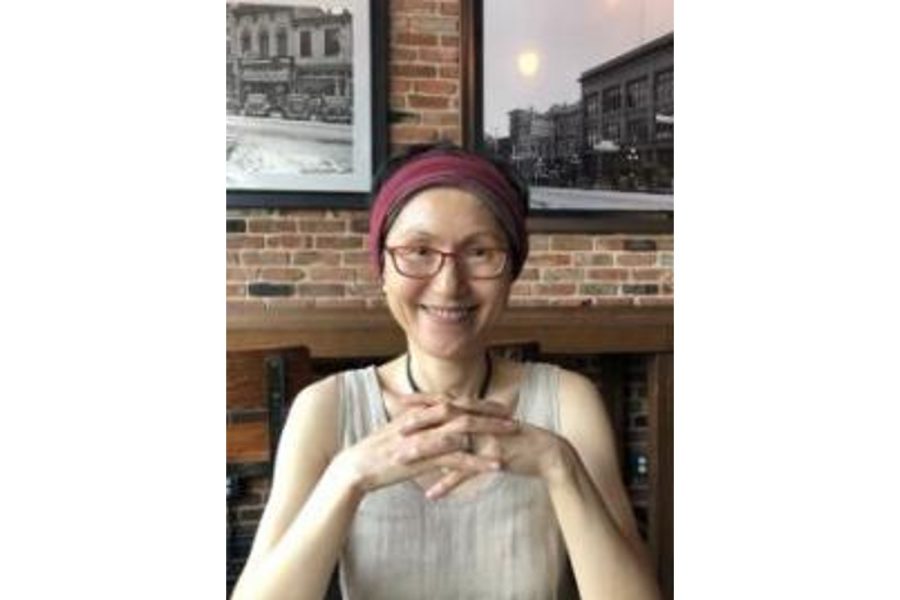New Korean Research Network looks to unite Korean scholars
A new interdisciplinary organization at the UI, called the Korean Research Network, hosted its inaugural conference over Zoom on Nov. 5 and 6. The network is a hub for professors pursuing Korea-related research in the Midwest.
Hyaeweol Choi is pictured. Photo from University of Iowa College of Liberal Arts and Sciences website.
November 28, 2021
Intellectual interest in Korean culture is increasing at the University of Iowa, stemming from Academy Award-winning film “Parasite” and the popularity of K-pop, said Stanley Family and Korea Foundation chair in Korean Studies Hyaeweol Choi.
Choi, also a UI professor of religious studies and gender, women’s, and sexuality studies, said this interest prompted a new Korean Research Network to connect scholars of Korean culture in Iowa and the Midwest.
Choi, who helped establish the Korean Research Network, said she went to the Korea Foundation, a South Korean nonprofit organization, with the idea in 2019 after noticing that professors of Korea-related studies had no central network to share their research.
The network would play that role, and since 2019, it has, Choi said.
“The Korean Research Network could be a useful platform for students and early career researchers to present a work-in-progress [and] get feedback, but also to be connected to fellow academics at Iowa and in the Midwest,” she said.
The Korea Foundation was eager to support the project, giving an annual $10,000, while UI International Programs gave $12,000 as seed funding to get things started, Choi said.
The network held its inaugural conference on Nov. 5 and 6 over Zoom and served as a platform for its keynote speaker David Kang, a professor of international relations and business at the University of Southern California, who spoke on North Korea’s nuclear program.
Choi said the network also has interdisciplinary aspects.
“Korean studies is very interdisciplinary, covering a large number of academic fields, such as history, gender, religion, communication, film and media studies, anthropology, sociology, and political science, among others,” she said.
Russell Ganim, UI associate provost and dean of international programs, also had a hand in initiating the network.
When he came to the UI in 2011 as the director of the division of world languages, literatures, and cultures, Ganim said he thought it necessary to expand Korean studies in the wake of the explosion of Korean pop culture across the U.S.
He said the cause of this explosion can be traced back to funding of the arts and culture by the South Korean government.
In addition to the humanities, Ganim said researchers involved in the network look at the business environment and the economic growth in Korea as well as sort of the military tensions that exist in Korea.
Additionally, Choi said the network goes beyond providing a superficial glimpse of Korean society and culture.
“There is a lot of amateurish and misinformed talk about Korea based on ungrounded knowledge or misinformation,” she said. “So, we scholars must try to provide a much more in-depth understanding of history.”
A former UI sociology student, Ji Hye Kim, is one such in-depth scholar, who presented her dissertation at a Korean Research Network lecture.
She said her research is focused on what she termed the younger “sample generation” in South Korea, who have been known to give up dating, marriage, and childbirth to a large degree.
“There’s a big trend, economic insecurity increased, so the marriage rate and childbirth rate has dropped significantly in Korea recently,” she said. “So, we want to know more about why people don’t get married and why they don’t have children, etcetera.”
Ganim said Korea’s pop-cultural prominence is not the only grounds for the creation of the new network.
“Korea has really become a player on the world stage,” he said. “Its emergence from the Korean War or really from colonization during the Second World War and before is nothing short of astounding.”
Because of its modernization and post-World War II significance, Choi said Americans can learn a lot about themselves through the study of Korean society.
“Korea, as a kind of a case, could be very relevant to our understanding of American society in general,” Choi said. “I think this comparison could give us new ideas, new perspectives, but also nowadays, we are literally interconnected globally. Any kind of regional specification does not make sense anymore.”
Choi said the Korean Research Network will host public lecture series and seminars in spring 2022, and she hopes next year’s fall conference will be in-person. Events during the spring semester, including a seminar on the #MeToo movement in February, will be posted on the Korean Research Network website.



